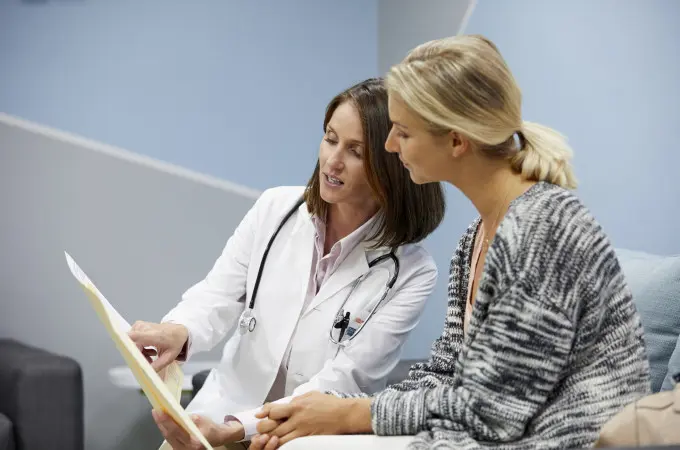by Naveed Khan, M.D., Shady Grove Fertility, Leesburg, VA
Hypogonadotropic Hypogonadism: a condition characterized by a lack of Follicle Stimulating Hormone (FSH) and/or Luteinizing Hormone (LH) resulting in anovulation.
A common symptom among women who have infertility is irregular menstrual cycles. Sometimes a woman is experiencing too many menstrual cycles but more often there are too few menstrual cycles. If a woman is having regular cycles every month, it is a good sign that she is more than likely ovulating. If a woman is having very infrequent cycles or not having any cycles at all, that could be a sign that she is not ovulating regularly or possibly not ovulating at all.
What is Hypogonadotropic Hypogonadism?
This past week, I had a large number of patients come in sharing that they did not have a period, known medically as amenorrhea. Several of the women experiencing amenorrhea are diagnosed with a condition called hypogonadotropic hypogonadism. Simply, this is a condition resulting from the underproduction of releasing hormones from the hypothalamus or from an underproduction of hormones from the pituitary gland.
Releasing hormones from the hypothalamus trigger the pituitary gland to produce and/or secret a different set of hormones. The pituitary gland – a pea sized gland that sits at the base of the brain – produces many hormones, including two important hormones involved directly with ovulation:
- Follicle Stimulating Hormone (FSH) and
- Luteinizing Hormone (LH).
If there isn’t enough of either of these two hormones, a woman won’t produce a follicle, thus no ovulation, which then results in an absence of a period or possibly a much delayed period. When a women does not ovulate, there is no chance for pregnancy to occur. The good news is that with medication, we can get a woman with hypogonadotropic hypogonadism to ovulate, thus restoring her fertility!
Causes of Hypogonadotropic Hypogonadism
Underlying causes of hypogonadotropic hypogonadism include:
- eating disorders such as anorexia or bulimia,
- excessive exercise such as running marathons,
- severe stress,
- a very low body mass
- various genetic conditions,
- tumors, or
- infiltrating diseases, such as sarcoidosis.
Watch Dr. Khan on Talking to Your OB About Fertility Testing
Testing & Treatment for Hypogonadotropic Hypogonadism
One of the first steps would be to do a hormonal evaluation of LH, FSH, thyroid stimulating hormone (TSH), and prolactin (PRL). Radiology testing of the brain and pituitary by magnetic resonance imaging (MRI), as well as genetic testing and counseling, may also be recommended. Actually, Dr. Eric Levens, one of my partners here at Shady Grove Fertility, just finished reviewing the most recent practice guidelines for women with amenorrhea for the American Society for Reproductive Medicine (ASRM), demonstrating the very high level of interest and knowledge regarding the evaluation and treatment of hypogonadotropic hypogonadism in our practice.
In order to treat the resulting infertility of a woman with hypogonadotropic hypogonadism, ovulation needs to be induced. This is done by taking daily low-dose injectable LH and FSH. The ovaries are monitored with bloodwork and ultrasound to assess response to the medication. If a woman is not responding to a given dose after several days, then the dose is very slowly increased. Most women – approximately 95% – will ultimately respond. Sometimes a woman can over stimulate, and in those cases the simulation cycle may need to be stopped or converted to in vitro fertilization (IVF). Some women repetitively hyper respond in ovulation induction cycles and in those cases, IVF may be the safest option to achieve pregnancy due to the significant risk of multiple pregnancies. Like any medical condition related to fertility, a woman’s age will have a significant impact on response and what will be the best treatment plan will be at that time. Overall, there is an excellent chance in achieving a pregnancy for women with hypogonadotropic hypogonadism.
If you have questions about fertility or are ready to schedule an appointment at Shady Grove Fertility, please speak with one of our New Patient Liaisons at 877-971-7755.



